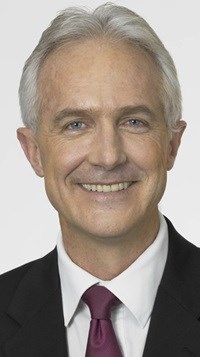Amid waning liquidity, higher funding costs, rand weakness and rising inflation South Africa needs a decisive policy response. The 50bp hike in the Reserve Bank's repo rate to 6.75% per annum, effective from 29 January 2016, at the conclusion of its Monetary Policy Committee (MPC) meeting on 28 January 2016 is the first step needed to maintain macroeconomic stability.
Waning foreign capital inflows have been insufficient to cover the current account deficit, culminating in a weak rand. Although the feed-through effect from rand weakness into inflation has been modest in recent years, it would be a surprise if the rapid decline in the currency since October 2015 does not cause a marked increase in inflation. History suggests feed-through effects to inflation increase markedly when the currency falls sharply in a short space of time.
Productivity levels and infrastructure constraints
The palpably weak state of real economic activity gives pause for thought. However, in addition to the collapse in commodity prices, the root cause of South Africa's poor GDP growth performance is to be found mainly in weak productivity levels and infrastructure constraints. When an economy's supply side is not functioning efficiently, there is little the monetary authorities can do to lift growth.
Rather, the task at hand for the Bank is to contain inflation expectations and maintain a relatively stable, low inflation rate (between 3% and 6%) over the medium to long run.
It is therefore no surprise the Reserve Bank has responded to the inflation threat at hand. The Bank argues inflation risks are materialising amid elevated inflation expectations and forecasts an increase in headline consumer price inflation to 7.8% by the final quarter of this year. Thereafter CPI is expected to average 7% in 2017, well above the upper limit of the Bank's inflation target range.

©Daniel du Preez via
123RFFuture interest rate decisions
Looking ahead, the MPC indicates future interest rate decisions will be data dependent, but also observes that the current monetary policy stance remains accommodative, given the expected increase in inflation. Further interest rate hikes seem likely, although the extent of this will depend on the future behaviour of the currency, actual inflation outcomes and inflation expectations.
But, whereas the hike in the Bank's policy rate is appropriate in the current situation, the main thrust of the policy response to maintain macroeconomic stability should be through changes in fiscal policy. Looking towards the National Budget for 2016 to be read by Minister Gordhan next month, it seems a repeat of the 2015 Medium-Term Budget Policy Statement will not be sufficient. The National Treasury should show a clear, credible path to debt stabilisation as it attempts to stave off further sovereign debt rating downgrades and restore bruised investor confidence.
Monetary and fiscal policy
Tax increases seem likely, but the scope for tax rate hikes or the introduction of new taxes is limited, given the weak state of the economy. Fiscal consolidation should also include trimming of government's medium-term expenditure projections.
Tightening monetary and fiscal policy can be expected to inflict pain on the economy in 2016, but the alternative appears worse. Foreign savings are needed to fund investment. Should the policy response fall short, South Africa is likely to struggle to fund its current account deficit, which implies economic growth cannot lift. If so, we risk slipping into a prolonged stagflation environment of elevated inflation and low growth.
Finally, the near-term monetary and fiscal policy response is one thing. Looking further down the road South Africa requires material structural economic reform to lift productivity and growth meaningfully.









































